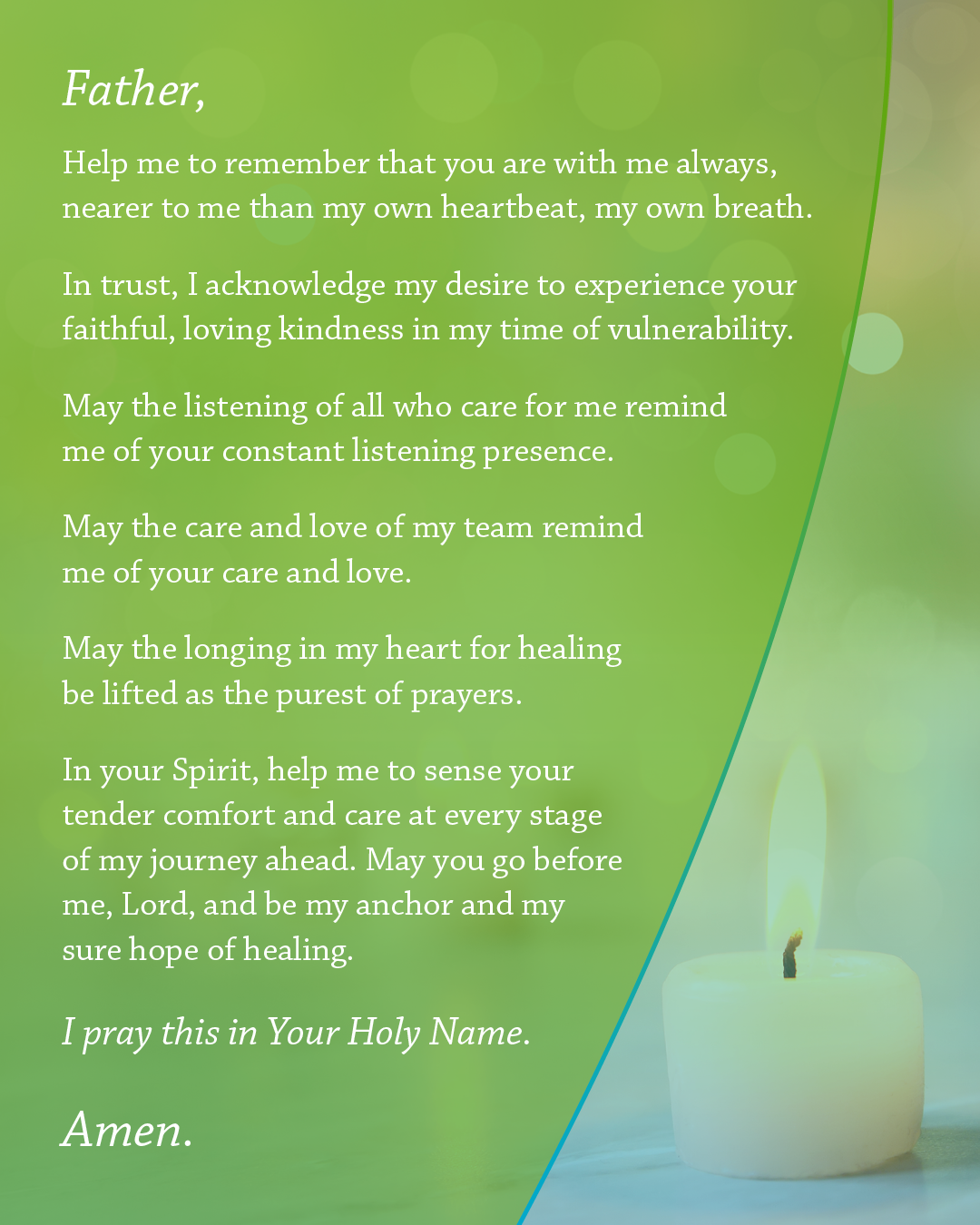Few words pack so much punch as this one: Cancer.
You’ve had a different screening test for all types of cancer and a physical exam. There were imaging tests and a CT scan, lab tests to identify if there were cancerous cells. The waiting leaves you wondering how you would cope with a cancer diagnosis.
Cancer can be overwhelming.
Still, when you sit in your doctor’s office and hear “cancer,” your life changes.
“A cancer diagnosis can be traumatic, devastating,” said Jozie Allen, LCSW, a counselor with OSF Cancer Support Services. “Initially, there’s shock, fear, anxiety; all these thoughts are swirling around.”
You can’t control your diagnosis. But it’s important to realize you can control your thoughts surrounding your diagnosis. How you come to terms with your diagnosis can affect your treatment decisions and quality of life.
Look for the silver linings
The good news is that cancer treatments continue to improve. Cancer survivors all around us live productive lives. You can, too.

Download this prayer card to keep with you.
Download
“We encourage people to acknowledge their feelings of loss and worry but also focus on what is going well,” Jozie said. “Having the necessary information to make informed decisions about your health can reduce your anxiety, along with developing a treatment plan with your care team.”
Part of the process involves self-examination. What’s important to you? What are your priorities? What are your goals for your treatment and beyond?
The better you know yourself, the better equipped you will be to cope with cancer.
“Knowing your values, goals and priorities all help you make the treatment decisions that are best for you. That can help give you a clearer perspective on how to approach your treatment. It also can help motivate you for treatment.”
Even if your cancer is severe and your outlook is not good, you can control how best to proceed with what time you have left.
“Be clear to outline your desires, your thoughts on quality of life and what that means to you,” Jozie said. “Creating short-term goals that improve your overall quality of life can be a great way to reign in anxious thoughts. These goals can be anything from having a weekly visit with a family member or friend, adding a new coping skill or exercise to your routine, etc.”
Remember – there are new developments in treatments and innovative clinical trials starting all the time. There is always hope.
Decide what’s best for you
Another question you’ll face is how much you want to share with others. Some people feel compelled to announce their cancer diagnosis on social media and post regular updates. Other people don’t want anyone to know. Still, others populate every inch of territory between those extremes.
Whatever you decide, make sure you share your feelings, and it’s what you want.
“I always tell people, ‘There is no right or wrong way to do this. There’s only the best way for you,’” Jozie said.
Jozie does offer a couple of important points to consider.
Deciding who to tell about your cancer diagnosis and how to tell them can be overwhelming and exhausting. Telling your loved ones and anyone who could potentially be providing care is a good place to start. Afterwards, they may be able to relieve the burden of informing others if you need help.
The other point is that you might require at least some assistance from loved ones – even if it’s as simple as transportation.
“Sometimes patients do not want to share their diagnosis and treatment with others, and that is just fine. It can be helpful, though, to have a response ready in case you’re in a situation you weren’t expecting. For example, ‘I’m not comfortable sharing information with others right now, but I appreciate your concern.’” Jozie said.
Turn adversity to opportunity
Sharing your journey with trusted friends and family members can help you reduce anxiety, isolation and fear. Peer support groups reinforce the reality that you are not alone.
A cancer diagnosis affects not only you but the lives of people around you. Turn it into an opportunity to strengthen yourself and your relationships.
“I also think it’s important to mention the role spirituality plays,” Jozie said. “If somebody has faith and belief in God, this is the time to rely on that. Faith and spirituality can reduce anxiety and bring peace when you are going through something traumatic.”
Jozie also advises looking at your situation as an opportunity to make positive changes in your lifestyle and habits. For additional help, you can access online resources provided by organizations like the American Cancer Society and National Cancer Institute or contact local support groups and religious organizations.
“A cancer diagnosis will change you,” she said. “You can’t control that you have cancer, and you don’t have control over what happens to you during treatment. But you can control how you view the challenges along the way and how you approach and navigate them.
“So find control over whatever you can. Set a daily routine. Keep a journal. Try to implement healthy lifestyle choices. Exercise as you can. Reassess your values and priorities. The changes that can occur after a cancer diagnosis can lead to personal growth and a newfound outlook on life.”
Last Updated: July 1, 2022

